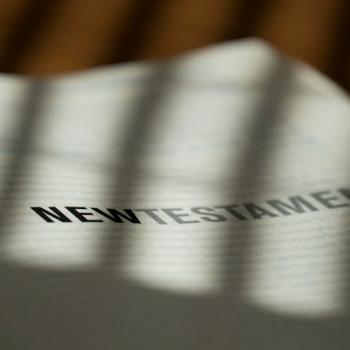Another problem we face is the lack of good recent scholarship about the Canaanites. Public libraries don't carry much on this culture, and sometimes it is difficult to get into or borrow items from university libraries. I've had to buy many of my resources; used books can be a real lifesaver. Older sources are usually more available and better known, and although many of them were groundbreaking in their day, since then there have been advances in archaeology, cultural anthropology, epigraphy, paleoethnobotany, and other disciplines that help us to understand the past more accurately.
And in modern sources there's a good deal less reliance on the Bible as a legitimate historical document, incorporating the Bible as an authority on Canaanite religion, or tweaking translations of Ugaritic texts to "prove" the Bible—all of which I have seen done. Basically, older sources are often permeated with Victorian sexual fascinations, James Frazer's Myth and Ritual School, biblical polemic, and heavy monotheistic bias, while newer sources involve more archeological and scientific evidence and less religious bias. Newer academic resources tend to focus on understanding the Canaanites for the sake of a broader understanding of history and humanity, instead of studying the Canaanites with the exclusive goal of proving the Bible.
As it is, we're a small bunch, but growing, and we're becoming better known as the days go by. Lilinah Biti-Anat was the first Canaanite-Phoenician I had ever heard about, and she started in the early 1990s. I myself became a Qadish, a Canaanite Pagan, at the end of 1998 and the Canaanite movement has grown slowly but steadily since then; indeed there is a good deal more networking amidst Pagans involving Near and Middle Eastern pantheons and religions than ever before. Nowadays, I'm seeing more people talking about Athirat, Rashap, Ba'al, and even Nanna, Enki, Al-Uzza, Tanit, Telpinu, and Arinna; and, joyously, I receive more and more emails out of the blue asking me about Canaanite deities and religion. I think Near and Middle Eastern Paganism, and Canaanite Paganism specifically, are on the verge of something great.
How important was it to you as a Qadish, to learn the languages of your religion: Ugarit, Hebrew, etc.? Does this play an important role in your worship? Do you think it should?
Learning the language of the deities' original culture helps a person to serve the deities, and it acts as an offering and a demonstration of devotion. For the layperson, it's a worthwhile and helpful activity, but not everyone has the opportunity or resources to learn an ancient language, and I believe the deities understand this. However, I feel that anyone looking to serve in a capacity as a kahinu/kahinatu (priest/priestess) should make an effort to learn a little Ugaritic.
It makes a good deal of sense to be able to read for oneself the ancient Ugaritic tablets, or at least the English-alphabet transliterated texts since it is difficult, though not impossible, to find photographs of the tablets. I've seen "firstborn" translated as "firstborn child" when the word "child" was nowhere in that sentence; it likely referred to firstborn of livestock. I've seen a note for the king to "paint himself with blood," when the text reads more like he "reddened himself," referring to the custom of painting with henna or murex before ritual. Knowing a language helps you to know how a people think, and it keeps the translators honest.
In order to learn Ugaritic, scholars assume you know Hebrew first because Hebrew is better known, and because many come to Canaanite studies through an interest in the Bible. Ugarit was a Bronze Age city in what is now modern-day Syria; indeed "Canaan" as we know it was a loose collection of (usually) unaffiliated city-states that spanned from southern Syria, through Lebanon, and the western tip of Jordan before sweeping through Israel. Learning Arabic is also helpful for Ugaritic studies since the languages are related by varying degrees. Hebrew and Ugaritic are not the same language, but they are as related as Italian and Spanish. I would suggest that anyone looking to adopt a Bronze Age Canaanite religion would do best to learn Ugaritic, and most Ugaritic primers make little sense without Hebrew or a background in linguistics, or both. An individual who would adopt Canaanite-Israelite ways would do well to learn Hebrew, especially Sephardic pronunciation. A Canaanite-Phoenician would find it helpful to learn Phoenician, Hebrew, and even Greek since some accounts of Phoenician religion are written in Greek, such as Philo of Byblos's "The Phoenician History."
In practice, when possible I try to make simple short prayers in Ugaritic; the prayer feels more powerful when in the original language of the deities. It also helps to know the different types of offering in Ugaritic since each term meaning "sacrifice" or "offering" indicates different activities: peace offering, tax offering, feast, burnt offering, expiation offering, and more. Writing in Ugaritic, or writing in Hebrew or Phoenician adds potency to magical texts and incantations; the Proto-Canaanite, Ugaritic, Phoenician, and Hebrew alphabets can all be used in divination similar to Norse runes, and repeating a phrase in the deities' language adds to a meditative state.





